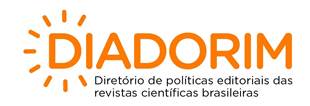Genetic variants IL18 -105G>A and -137G>C associated with susceptibility to migraine
Views: 1496DOI:
https://doi.org/10.48208/HeadacheMed.2022.Supplement.12Keywords:
Migraine, Cytokines, IL-18Abstract
Introduction
Few studies have been conducted into neurogenic inflammation and neuroinflammation in respect of migraine. However, evidence suggests that the immune system may exert an influence over trigeminal activation and cortical spreading depression in individuals suffering from migraine. The interleukin (IL)-18 is a pro-inflammatory cytokine and increased plasma levels have been confirmed in individuals with migraine. However, as yet, the genetic variants of IL-18 have not been investigated in the context of migraine.
Objective
To investigate the association between genetic variants IL18 -105G>A (rs360717) and IL18 -137G>C (rs187238) and susceptibility to migraine and its clinical characteristics.
Subjects and Methods
Case control study comprising 307 participants, of whom 152 had a diagnosis of migraine and 155 were healthy controls, paired by sex, age, ethnicity and BMI. The clinical and demographic data were evaluated. The patients with migraine were interviewed using a structured form containing information about the type of migraine (with or without aura, episodic or chronic), age at onset of the disease, frequency of attacks, accompanying symptoms that triggered headaches. The patients also answered validated questionnaires to evaluate incapacity (Migraine Disability Assessment - MIDAS) and impact (Headache Impact Test - HIT-6) for migraine, the presence of allodynia (ASC-12), as well as symptoms of anxiety (State Anxiety Inventory - STAI 1 and 2), depression (Beck Depression Inventory) and a hyperacusis scale.
The genetic variants IL18 -105G>A (rs360717) and IL18 -137G>C (rs187238) were identified using polymerase chain reaction (PCR) and the fluorescence levels of PCR products were evaluated using a Step One thermocycler (Applied Biosystems). The analyses were conducted using the dominant, codominant, recessive and overdominant genetic models. (To see the complete abstract, please, check out the PDF).
Downloads
Downloads
Published
How to Cite
Issue
Section
License
Copyright (c) 2022 Aline Vitali da Silva , Beatriz Rabello Espinosa , Tainah Mendes Ahrens , Adriano Torres Antonucci , Valéria Aparecida Bello , Regina Célia Poli Frederico , Carlos Eduardo Coral de Oliveira , Edna Maria Vissoci Reiche, Andrea Name Colado Simão

This work is licensed under a Creative Commons Attribution 4.0 International License.












